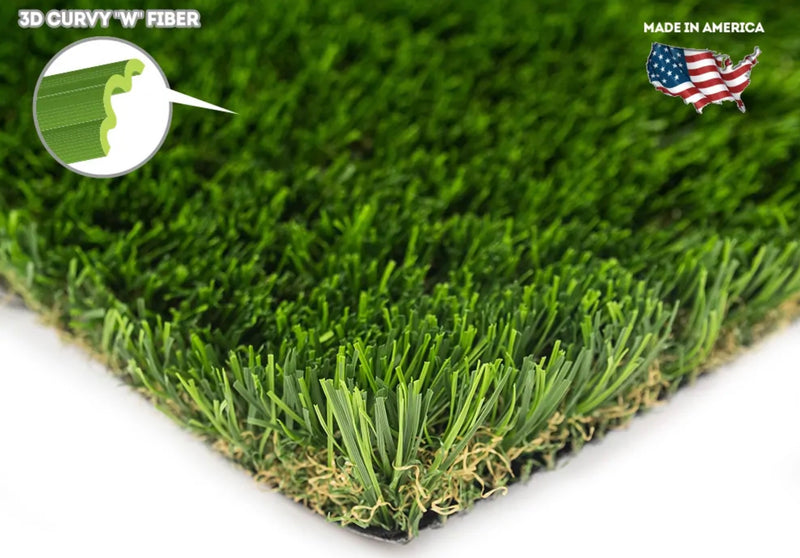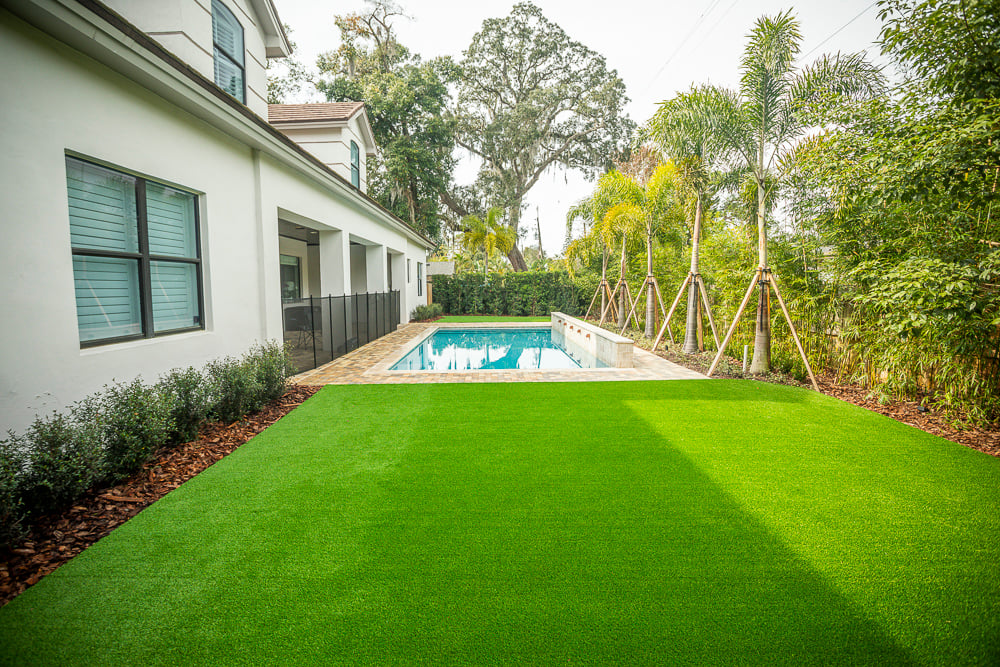Upgrade Your Outdoor Space with Arizona Artificial Turf for a Vibrant Green Look
Upgrade Your Outdoor Space with Arizona Artificial Turf for a Vibrant Green Look
Blog Article
Delve Into the Environmental Benefits of Opting for Artificial Lawn Solutions
The fostering of artificial grass solutions presents an engaging chance to attend to pressing ecological challenges. By significantly lowering water use and decreasing the application of damaging chemicals, these alternatives not just advertise lasting landscaping yet also safeguard neighborhood communities. The lower carbon footprint connected with lowered upkeep tasks adds to a more sustainable technique to land monitoring. The implications of these benefits prolong past mere conservation efforts, increasing questions about their long-term influence on environment preservation and overall ecological balance. Checking out these measurements discloses a complicated interplay worth taking into consideration.
Water Preservation Perks
One of the most significant advantages of fabricated grass is its capacity to preserve water. In contrast, artificial turf does not need watering, substantially reducing the overall demand for water resources.
By removing the requirement for normal watering, synthetic grass adds to lasting landscape techniques and assists mitigate the environmental impact of too much water usage. The conservation of water expands to the decrease of runoff, which can lead to soil disintegration and waterway contamination.
In addition, the setup of artificial lawn enables municipalities and homeowners to assign water resources a lot more successfully, concentrating on crucial uses such as drinking water and farming. The shift towards synthetic grass not just promotes liable water use however likewise straightens with wider ecological objectives targeted at maintaining natural sources.
As neighborhoods progressively prioritize sustainability, the water conservation advantages of synthetic grass offer an engaging instance for its adoption in residential and industrial landscape design jobs.
Minimized Chemical Usage
The transition to artificial lawn dramatically reduces the reliance on chemical therapies frequently utilized in natural yard upkeep. Conventional turf monitoring typically entails the application of chemicals, plant foods, and herbicides to advertise growth and control insects. These chemicals can posture dangers to human health, regional wild animals, and the atmosphere, contributing to soil and water contamination.
On the other hand, man-made turf gets rid of the demand for these unsafe compounds. As soon as installed, it needs minimal maintenance, primarily containing normal cleaning and occasional infill replenishment. This reduction in chemical usage not only benefits the instant setting but likewise adds to broader environmental security. By minimizing the release of artificial compounds into the environment, fabricated turf promotes much healthier dirt and water supply.
Additionally, the lack of chemical drainage associated with fabricated turf installations helps safeguard local waterways from pollution, supporting aquatic life and maintaining biodiversity. Phoenix turf companies. As neighborhoods progressively prioritize sustainable practices, choosing for man-made grass presents a practical service that aligns with ecological preservation objectives. With this shift, homeowner can enjoy lush green rooms without jeopardizing environmental wellness, leading the way for a much more lasting future
Reduced Carbon Impact

Moreover, the installment of synthetic grass can result in considerable water preservation. All-natural lawns need substantial amounts of water for irrigation, which not just includes to the carbon footprint connected with water removal and therapy yet also stress neighborhood water resources. In comparison, synthetic grass needs very little upkeep, requiring no watering, therefore substantially reducing water usage and its associated energy expenses.
Additionally, the longevity of synthetic grass adds to its lower carbon impact. With a lifespan of up to 15 years or more, the need for regular substitutes is reduced, causing much less waste and reduced power usage in manufacturing and disposing of traditional grass alternatives. In general, synthetic grass provides a sustainable choice for ecologically mindful landscaping.
Habitat Preservation
Environment preservation is a vital factor to consider in the dispute over landscaping selections, especially when comparing fabricated turf to all-natural grass. All-natural turf yards frequently require comprehensive upkeep, consisting of the use of plant foods, herbicides, and pesticides, which can detrimentally affect local ecological communities. These chemicals can seep into the soil and rivers, hurting indigenous plants and fauna and interfering with regional try here environments.
On the other hand, artificial lawn presents a possibility to decrease the eco-friendly impact of landscaping. By choosing for artificial turf, homeowners can lessen the interruption of all-natural habitats related to typical lawn treatment methods. Synthetic grass eliminates the need for dangerous chemicals, therefore safeguarding close-by wildlife and maintaining the honesty of surrounding environments. Moreover, the setup of fabricated turf can result in the conversion of previous yard locations into more biodiverse landscapes, such as pollinator gardens or native plant areas, which can sustain neighborhood wild animals.
Eventually, the transition to synthetic grass not only conserves water and reduces upkeep initiatives yet additionally cultivates a much more harmonious connection in between human activities and the native environment, advertising habitat conservation in the process.
Long-Term Sustainability
Lasting sustainability is a critical consider examining the advantages of synthetic grass over standard turf yards. Among the most substantial benefits of artificial lawn is its longevity; it can last as much as 15-20 years with minimal upkeep, whereas natural yard needs frequent reseeding and substitute. This longevity lowers the requirement for constant resources, such as water, fertilizers, and pesticides, which are important for keeping a healthy grass yard.
Additionally, artificial turf adds to a reduction in carbon discharges related to yard treatment devices. Traditional grass typically require gas-powered lawn mowers, trimmers, and blowers, every one of which add to air contamination. Turf installation phoenix az. On the other hand, synthetic grass eliminates the requirement visit this site for such tools, advertising a cleaner environment
In addition, the production of synthetic grass significantly utilizes recycled materials, boosting its sustainability profile. As makers adopt environmentally friendly methods, the ecological impact of artificial turf remains to lessen.

Conclusion
The adoption of synthetic grass remedies provides considerable environmental advantages, consisting of significant water preservation, lowered dependence on damaging chemicals, and a reduced carbon impact. In addition, synthetic grass aids in preserving natural environments by minimizing land disturbance and promoting lasting sustainability via the use of resilient visit here products. Collectively, these aspects highlight the potential of synthetic grass to contribute positively to ecological wellness and offer a practical alternative to typical landscape design practices in a progressively resource-conscious world.
In contrast, synthetic lawn does not require watering, considerably reducing the total demand for water resources. By decreasing the release of artificial substances into the ecological community, fabricated grass promotes healthier soil and water systems.
Furthermore, the installation of fabricated lawn can result in significant water preservation. In comparison, fabricated lawn needs minimal maintenance, calling for no watering, therefore considerably reducing water usage and its linked energy expenses.

Report this page